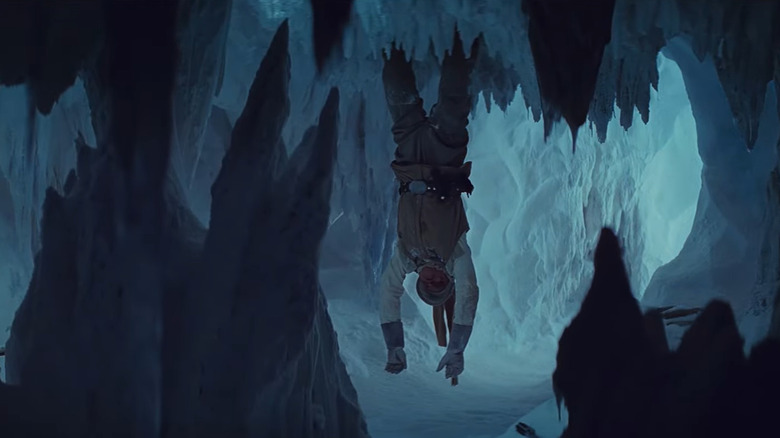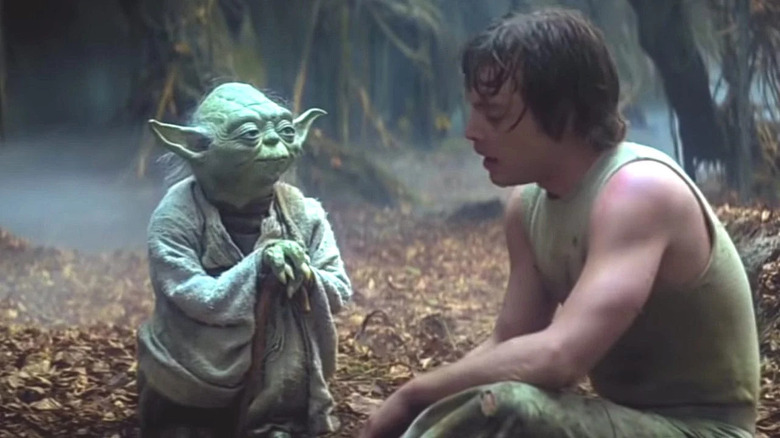Why The Start Production Of Star Wars: The Empire Strikes Back Set A Bad Tone For George Lucas
Most "Star Wars" fans today would probably agree that "The Empire Strikes Back" is one of the best movies in the franchise, if not the best. It took all the main characters from the first movie and gave them individual storylines that were fresh and exciting, while also feeling like natural continuations of where they left off at the end of the original. The film also appreciated that its story was set in a vast galaxy with tons of varied planets like Hoth, Dagobah and Bespin, and didn't settle for taking us back to the desert like so many of the other sequels would. The initial movie was a great first impression; the second movie was when we knew "Star Wars" would stick around in pop culture until the end of time.
Behind the scenes, however, things didn't seem so promising. Although George Lucas did not direct "Empire" like he did the first movie — here, that role was taken by director Irvin Kershner — he was heavily involved in the whole process, financing the film himself to get a level of creative freedom the first movie lacked. It was a move that paid off in spades down the line, but also made the entire production process a million times more stressful for Lucas, especially since they almost immediately started falling behind schedule and over-budget.
"They were supposed to shoot [the Hoth scenes in Finse] in two weeks and they shot it in months," Lucas explained, "So it created a lot of havoc. We were projected to go way over budget and I'd already borrowed all the money that I could." A second bank gave him another loan, which meant he didn't lose the movie, but also meant the financial pressure he was under had basically doubled.
A miserable filming process
The troubled production of those early Hoth scenes set the tone for a movie that was tough on nearly everybody involved in making it, not just Lucas. Mark Hamill, for one, was often frustrated by the fact that he spent half the film acting with nothing but a puppet to bounce off of. There were also apparently constant arguments between the cast members off-camera. The visual effects department, tasked with having to break new ground yet again, also struggled with morale.
As things grew more dire, Lucas decided to take a more involved approach. "I realized that the movie was just going to keep going over budget and over budget and over budget unless I went over there and watched over it," Lucas explained. "So I spent the rest of the time in England working with Kersh and trying to get the movie done at a reasonable budget."
Despite everything, Lucas managed to give the crew far more freedom than they had in the original "Star Wars," where their schedule and budget was severely limited. "Since I was financing this one, I wasn't quite that Draconian about how we were going to finish," Lucas said. "I had to accept the fact that we were going way over budget, way over schedule."
We can't argue with the results: "The Empire Strikes Back" was a massive success, one that easily ensured a third film could be made to finish off the trilogy. From this point on, "Star Wars" was established as box-office gold, and George Lucas would never struggle to fund his "Star Wars" movies ever again.

